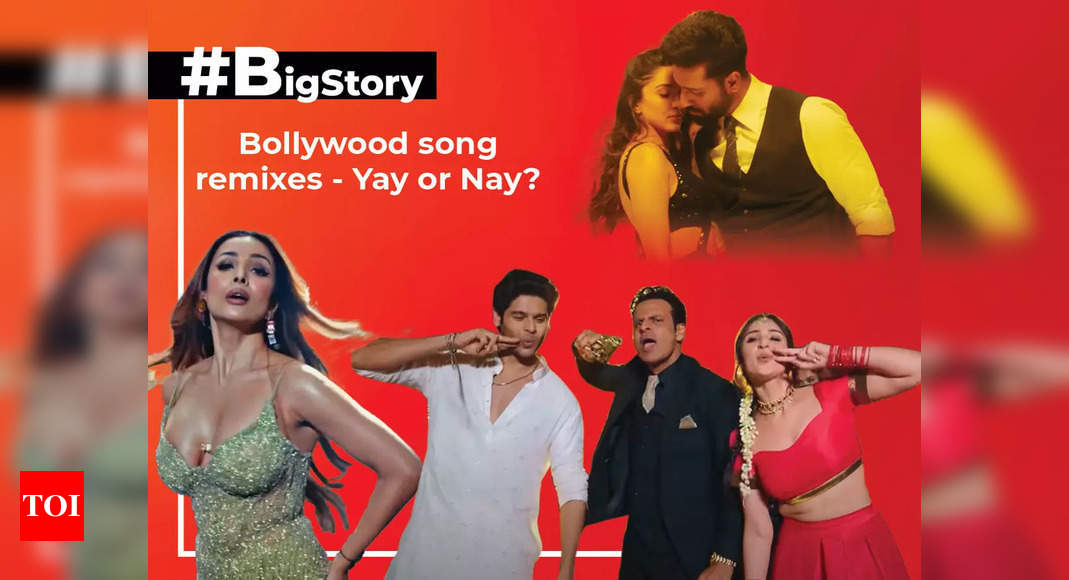Aap Jaisa Koi, Jehda Nasha, Kudi Meri, Kyaa Baat Haii 2.0: Why is Bollywood obsessed with remixing old classics? – #BigStory – Times of India
Aap Jaisa Koi featuring Malaika Arora and Ayushmann Khurrana in An Action Hero. “Nazia Hassan must be turning in her grave,” he remarked, stating that re-creation requires talent.
Is there something in the air that the world has suddenly developed a penchant for ruining perfect classics? Even r… https://t.co/qbM3GQiKbC
— Adnan Siddiqui (@adnanactor) 1669673991000
This is just one among the many failed attempts to reincarnate old compositions that have been a raging hit in their times. There were few more within the weeks gone by. The same film featured a recreated version of Amar Jalal and IP Singh’s
Jehda Nasha that was slammed by many. Fans gave a big thumbs down to the recreated version of the popular dance number from Satya –
Sapnon Mein Milti Hai, now titled
Kudi Meri featuring Abhimanyu Dassani and Dhvani Bhanushali with a special appearance from ‘Bhiku Mhatre’ Manoj Bajpayee himself. Vicky Kaushal and Kiara Advani starrer remixed version of Harrdy Sandhu’s Punjabi number
Kya Baat Ay was met with a similar fate. Netizens slammed
Kyaa Baat Haii 2.0 from Govinda Naam Mera stating Bollywood is ‘murdering every hit Punjabi song’.
Yohani’s
Manike Mage Hithe, Phalguni Pathak’s
Maine Payal Hai Chhankai, AR Rahman’s
Masakali, Kishore Kumar’s
Dil Mein Chhupa Loonga,
Humma Humma,
Tamma Tamma,
Chamma Chamma,
Saki Saki – the list of remixes that ruined the memory of the can be endless. Today’s #BigStory seeks to find out what drives Bollywood to keep going back to repackaging and reusing old classics over creating new music despite all the flak, is there a dearth of original ideas to compose new music, are we becoming lazy and taking the easy way out and more. Read on.
Why remix old classics?
To set the record straight the hit ratio of remixes has always been skewed – very few appealed to the taste buds of the audience with
Bhool Bhulaiyaa,
Laila,
Tamma Tamma,
Disco Deewane making it to the list. As noted film journalist and author Chaitanya Padukone states, “Almost every third Hindi movie has a remixed version of an old retro-chartbuster track. Evidently they are trying to cash in on the timeless recall value of the old retro song. As the adage goes, selling precious old sparkling wine in a new attractive bottle.”
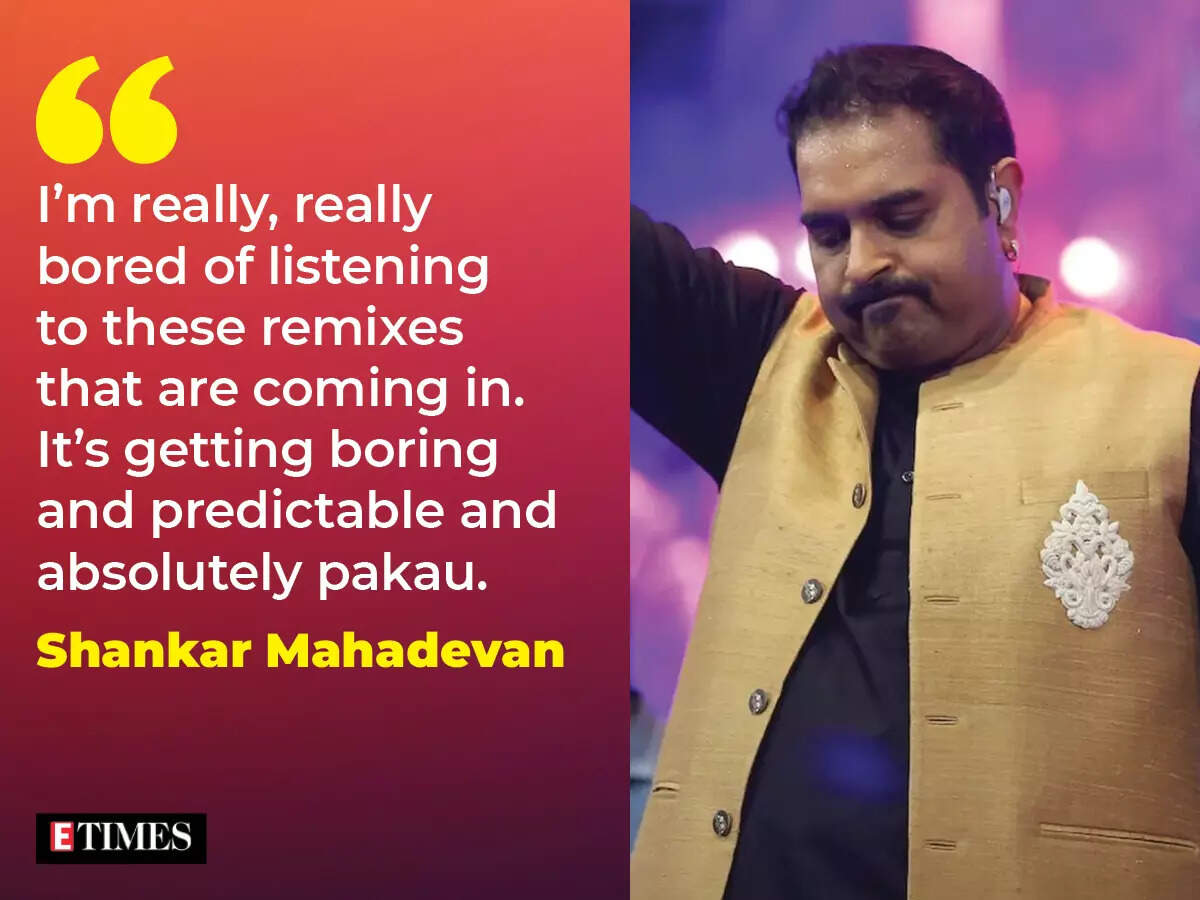
Singer-composer Shankar Mahadevan makes no bones about it as he says, “I’m really, really bored of listening to these remixes that are coming in. I’m totally against it right now.” Just like us, the musician fails to understand the ‘philosophy behind it’. “I think they’ve got their own thought process that if they remix an old song, it is going to become a hit and that will attract more audience into the theaters. Secondly, I think the whole selection of the music for the film is being done by the music company. There was a time when a director used to decide. I think right now, the whole concept of the music company is to just have a remix which has got no connection with the story or the film or anything to do with that. But none of it works! Musically, aesthetically, it just doesn’t even reach where it is supposed to, because we’re not talking about creative music at all. Don’t they have any kind of confidence in the music composers?” he questions.
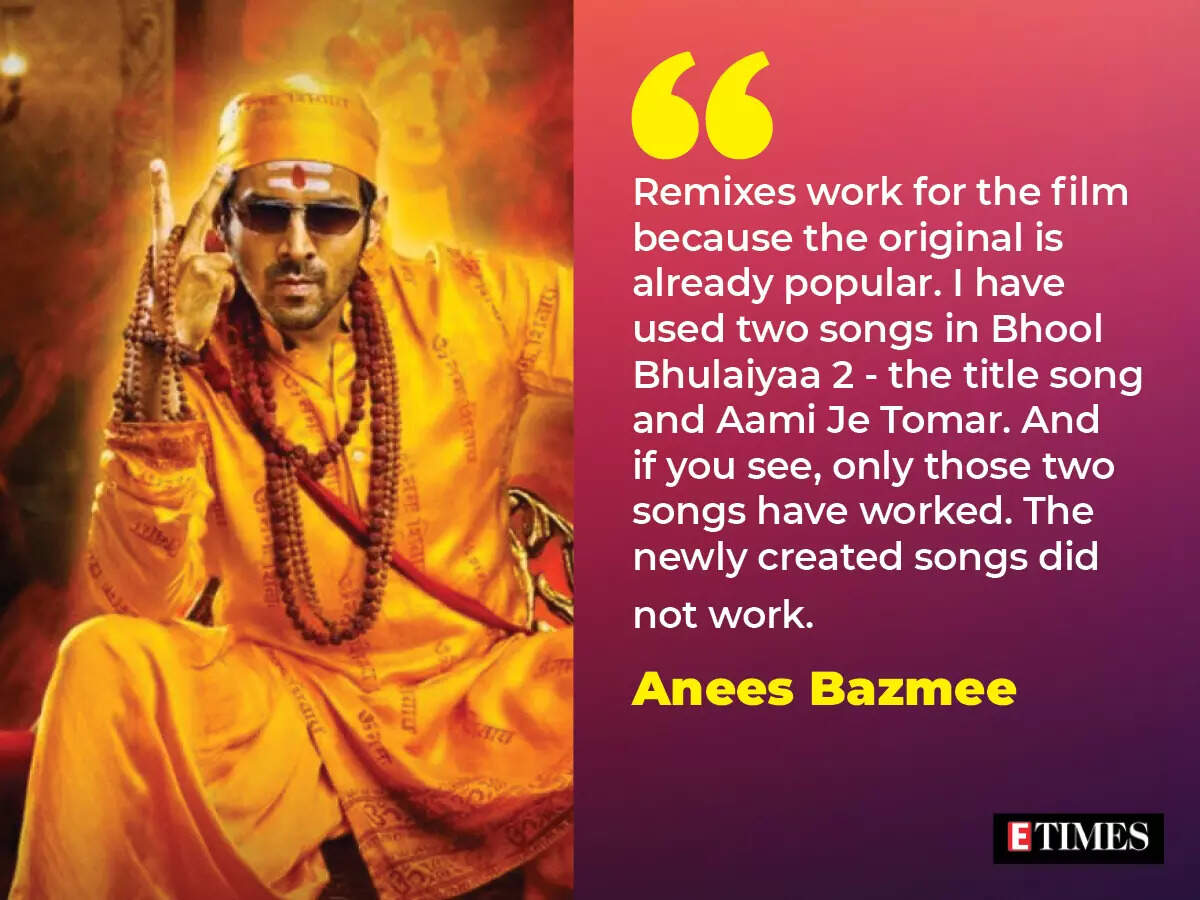
Bhool Bhulaiyaa 2 director Anees Bazmee explains remixes work for the film because the original is already popular. “When it is remade and presented in a new way, it helps the film,” he says. “But I am not of the opinion that all the songs in the film should be remixed. I have used two songs in Bhool Bhulaiyaa 2. One was the title song and the other one was
Aami Je Tomar. Both these songs were important for the film. And if you see, only those two songs have worked. The newly created songs did not work. So, the makers are aware that remixes of already popular songs can work with a few modifications.”
Veteran playback singer Anuradha Paudwal says, “Today no one wants to take a chance. They would rather play with already hit numbers than compose new songs.”
Promotional strategy
Songs have always played a significant role in creating a buzz around a film. So old classics that became a rage are a go to option for the makers over the uncertainty of new composition. Music composer Lalit Pandit of Jatin-Lalit fame has seen many of his original compositions turn into remixes. He says the trend of remixes is big today because the music companies, directors, and producers are all insecure about getting a hit song. “They cannot figure out if the music will become a hit or not, which is imperative for any film,” he states. “They feel it is easy to remix the old song since it was already a hit. It is their point of view. There is a sense of desperation to get a hit song. Even my song
Bin Tere Sanam among many others has been remixed. It will continue and only hit songs will be remade.”
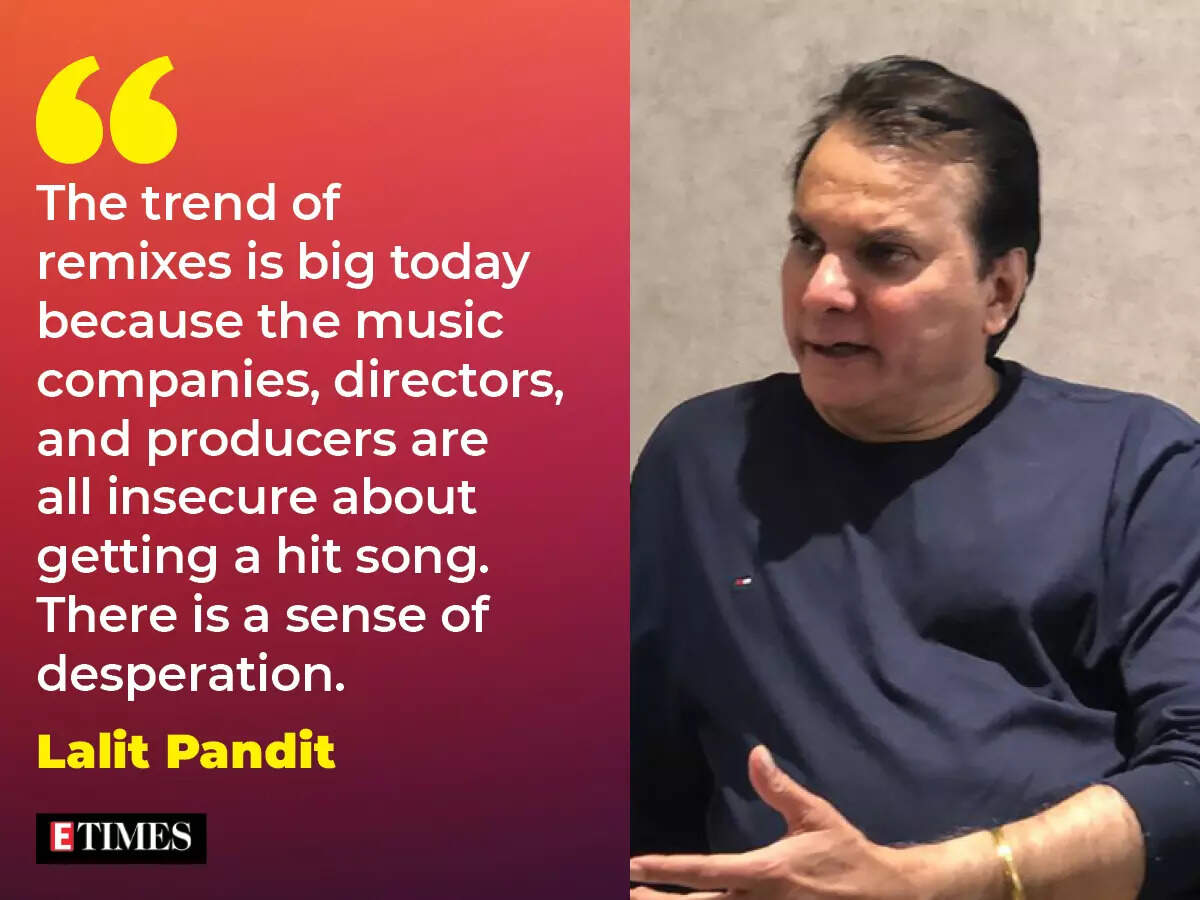
Producer Ratan Jain calls a spade a spade as he says, “
Filmon se music khatam ho raha hai. They need music only for promotion and not within the story of the film. When music itself has vanished from films, there are these remixes that are either item songs or end titles which are not a part of the story. We are scared of putting music in films, it’s like we are trying to copy Hollywood.”
Music composer-singer Tanishk Bagchi is perhaps the King of Remixes in today’s times having maximum recreations to his credit. He is the one often facing brickbats on the internet each time the audience feels an old classic has been butchered. Shankar Mahadevan backs Bagchi and says he doesn’t blame him at all. “He’s doing a great job as far as the remixes are concerned,” he says. “It’s work for him, you know? When there is no work in the industry, the work is needed for young music composers. Don’t blame the music composers for this. Blame the music company, blame the producer, and to a certain extent if the director is in control, blame the directors also for taking a decision like this. It’s getting boring and predictable and absolutely
pakau.”
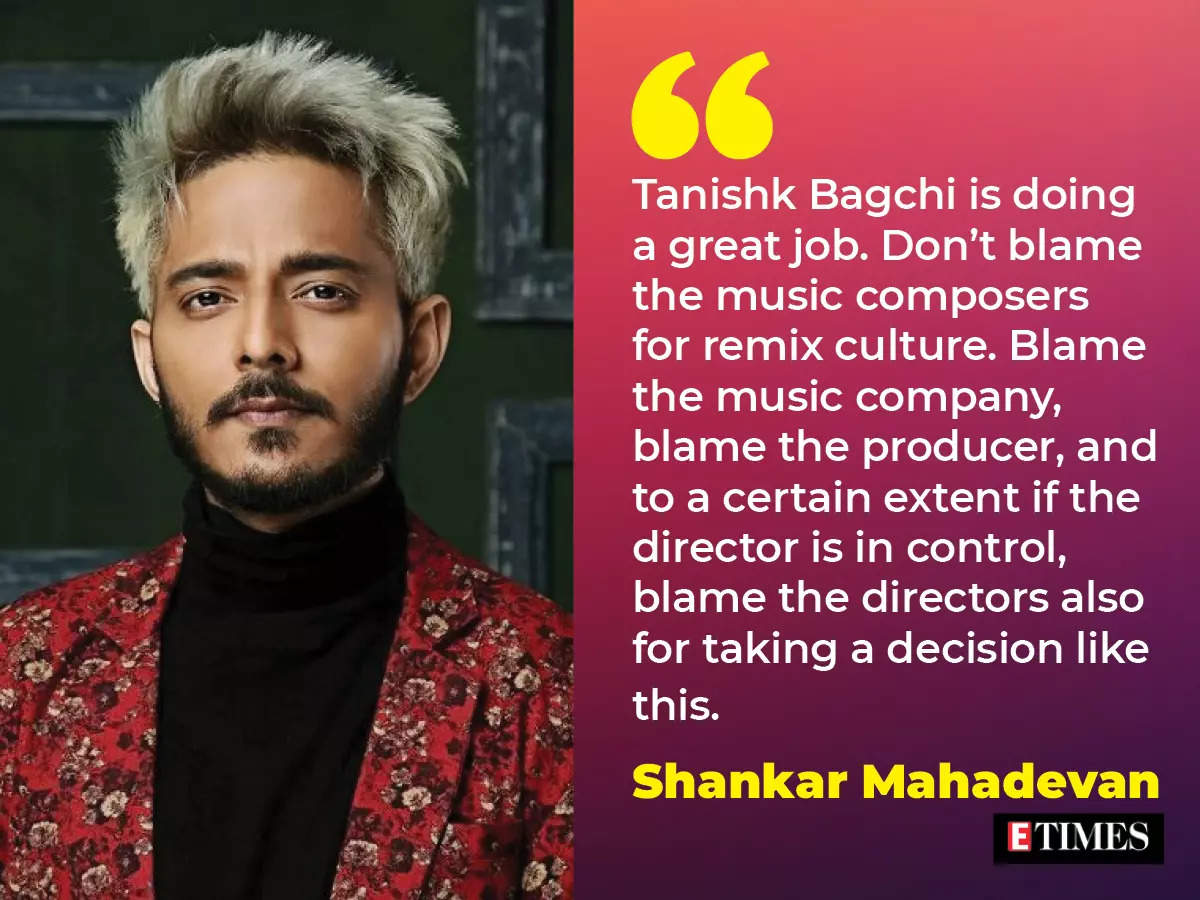
Heaping praises on Tanishk, Shankar goes on to say, “Tanishk is a fabulous musician. He can compose original songs too. He is a young, new, upcoming composer. And it’s work at the end of the day. So please do not blame the music composer. I’m sure that if he composes an original song, the music company will reject it. They say, ‘No we don’t want this.
Koi purana gaana hi leke daal do’.”
While Ratan Jain agrees most of the songs are ruined while remixing, only some of them turn out better, he disagrees that the call is taken by music companies. “It is done by the producer and director. Companies only distribute the music. We don’t have the kind of music directors and composers today like we had earlier. Today’s music has no composition only. If you talk about music directors,
aaj Pritam (Chakraborty) chhod ke kaun bacha hai?” he says.
Is it unethical to remix a song?
There is no one way to answer this question. While remixes bring more visibility to the song and artistes, they also give a new identity to an old classic. But again the question remains, is it ethical to recreate a remix of an original old song of a legendary composer? The late legendary composer-singer RD Burman time had told senior writer-author Chaitanya Padukone (author of memoirs book RD Burmania) during the late ‘80s that “it is unethical to reproduce or reprise any original song without prior consent and without giving due credits to the original composer. Secondly, in the process of remixing, the melodious essence of the original composition should be preserved and not be distorted.”
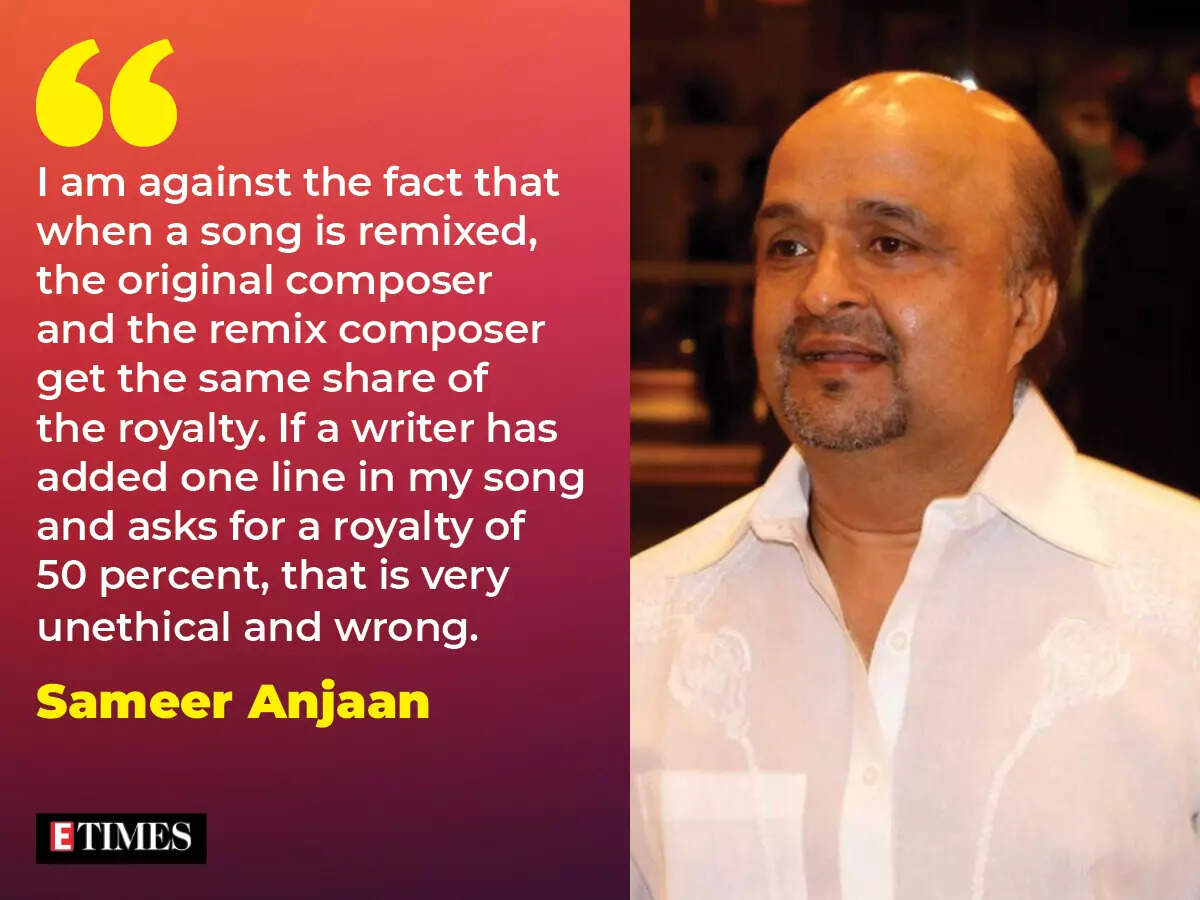
Lyricist Sameer Anjaan holds the Guinness World Record for writing the most number of songs. While he is not against the remix culture, he tells ETimes three things that he does not quite agree with. “I am against the fact that when a song is remixed, the original composer and the remix composer get the same share of the royalty. That is wrong. If a writer has added one line in my song and asks for a royalty of 50 percent, that is very unethical and wrong. Secondly, the originality of the song is lost. No thought,
no lena dena, koi bhi line likhi jaa rahi hai. Uski creativity ke saath khilwar hai. And thirdly, if the original writer or music director is alive, what is the problem asking them to remix the song? Why not give them an opportunity? 90 percent of my hit songs have been remixed. The original writer and music director are not even credited in remixes these days.”
Lalit Pandit echoes the sentiment and says, “A remixed song was already made by some other writer/composer who worked hard on it. These guys just make changes and do not credit the writer and composer at all. This is very bad. Credit is not given so that royalty need not be given to the original composer as well. So many songs of Kalyanji have been remixed. Javed Akhtar even had a legal case on
Ghar Se Nikalte Hi song that he had written and was composed by Rajesh Roshan. This is wrong.”
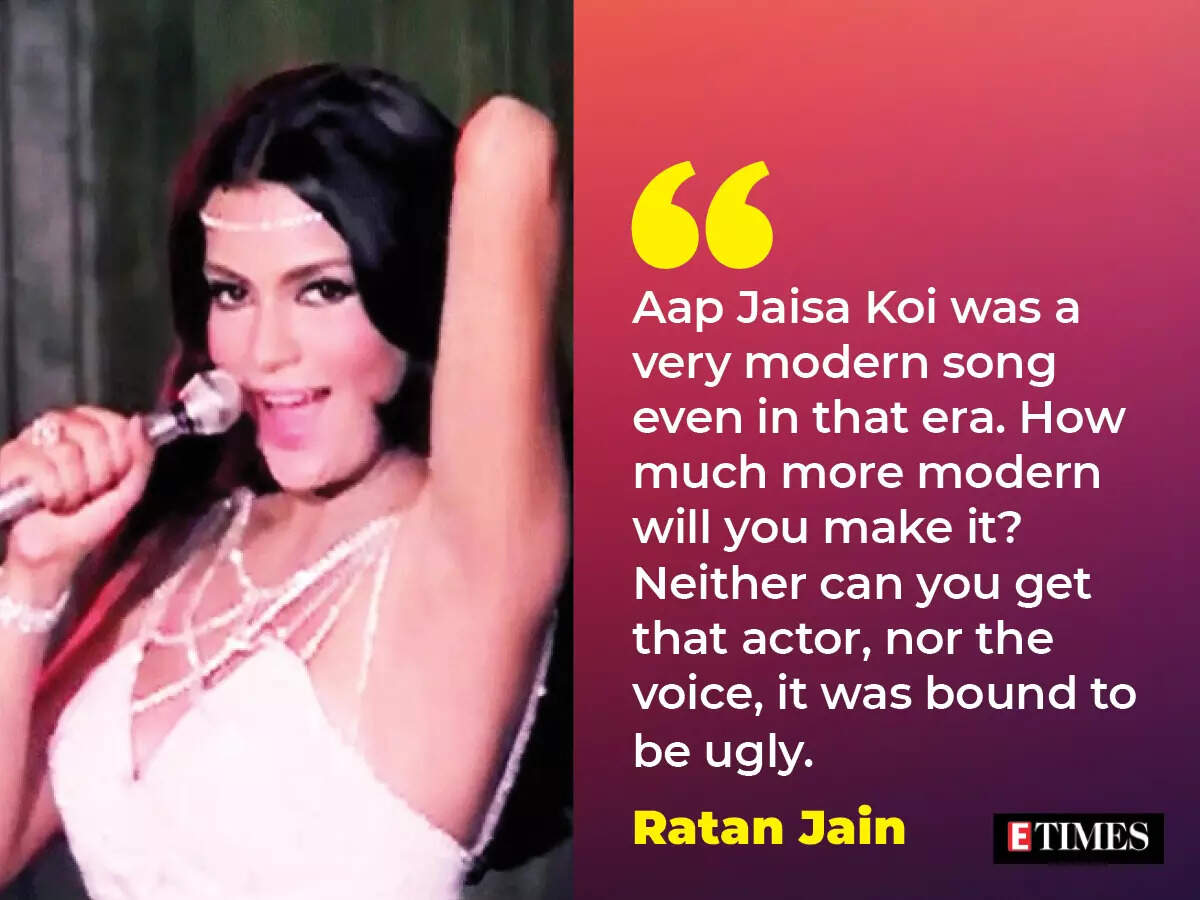
Ratan Jain recalls he had remixed
Chura Ke Dil Mera and even he had to face the barbs because it was not as good as the original. “Many have approached me to remix songs that I had the rights to.
Tu Cheez Badi Hai Mast Mast,
Tip Tip Barsa Paani were remade, but none came even close to the original. Nazia Hassan’s
Aap Jaisa Koi was a very modern song even in that era. How much more modern will you make it? Neither can you get that actor, nor the voice, it was bound to be ugly,” he says.
Shankar Mahadevan recalls they had composed
Pretty Woman about 18 years back. “We bought the rights to the song. We did not remix anything, as it was an English song. And we’ve done one remix a long time back for Housefull, that’s it. That time it was a new concept, just a wacky, crazy thing. But right now this is coming out of people’s ears. Every film, you can see the patterns – the decision is made by music companies.”
Connecting the youth with the old
Legendary composer Anandji bhai of Kalyanji-Anandji fame had shared with Chaitanya Padukone “that the positive flip side of a well-recreated ‘remix’ is that it also serves as a catalyst which sometimes ‘connects’ the young generation to various old ‘forgotten’ evergreen chartbusters. But at the same time, the original soul and flavour of the timeless songs should never be badly tampered with”.
Singer and songwriter Neha Bhasin believes while there is nothing wrong in remixing a song, the onus of doing it aesthetically and keeping the respect of the original composition intact rests on the composers and the artistes who are involved in making the track. “And if that’s lacking, then they must take the responsibility or the accountability for the same,” she says. “But with multiple artists making an album with labels wanting only their own artists or their own composers to do music, it is kind of narrowing down to sort of a mafia of sorts. We’re not allowing one composer to do the whole album. Now you’re making songs just to promote a film. That integrity of music is not there anymore in that sense.”
Does Bollywood lack originality?
Each time a remix number wrecks the original vibe and aesthetic of a song, this is one question that plagues the minds of music enthusiasts the most. As Lalit Pandit aptly says, “This is a work of mutilation.
Achhe gaane ki cheer-phaad karte hain. Many believe you should not touch classics. There are good composers who can create original music. Why not challenge them to do such good work like the classics? They are very capable, makers should only have guts to trust them.”
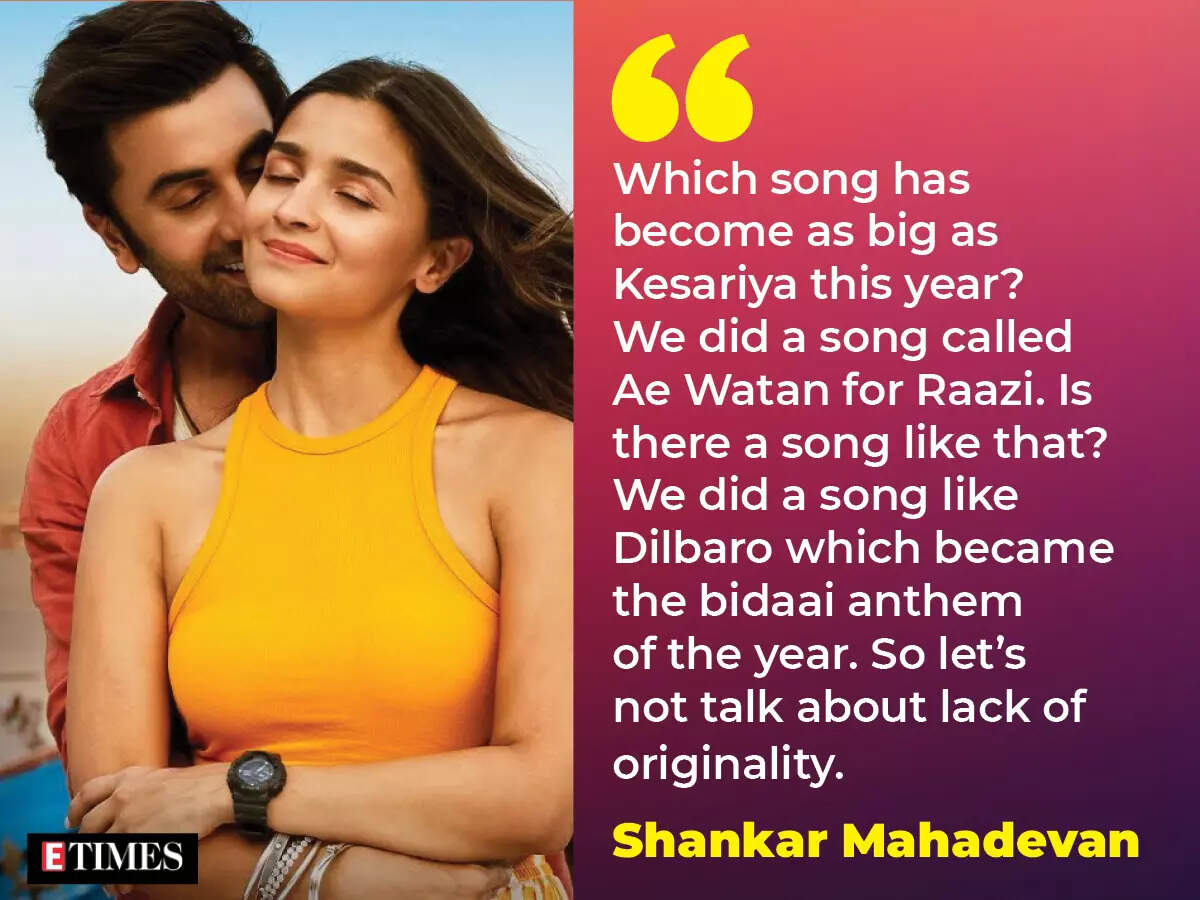
Shankar Mahadevan adds, “Which is the only hit song of this year? It’s a song called
Kesariya. And it is an original song with original lyrics, original melody; it’s not a remix. Which song has become as big as
Kesariya? We did a song called
Ae Watan for Raazi. Is there a song like that? We did a song like
Dilbaro which became the
bidaai anthem of the year. So let’s not talk about lack of originality. But the thing is, they don’t want to have one music composer composing for the entire film. We will not do a film where five music composers are there. We’d rather do independent music because now’s the time for independent music. Then they come and ask us to do one offs. I don’t even blame the young composers for doing it, because they need work, you know?”
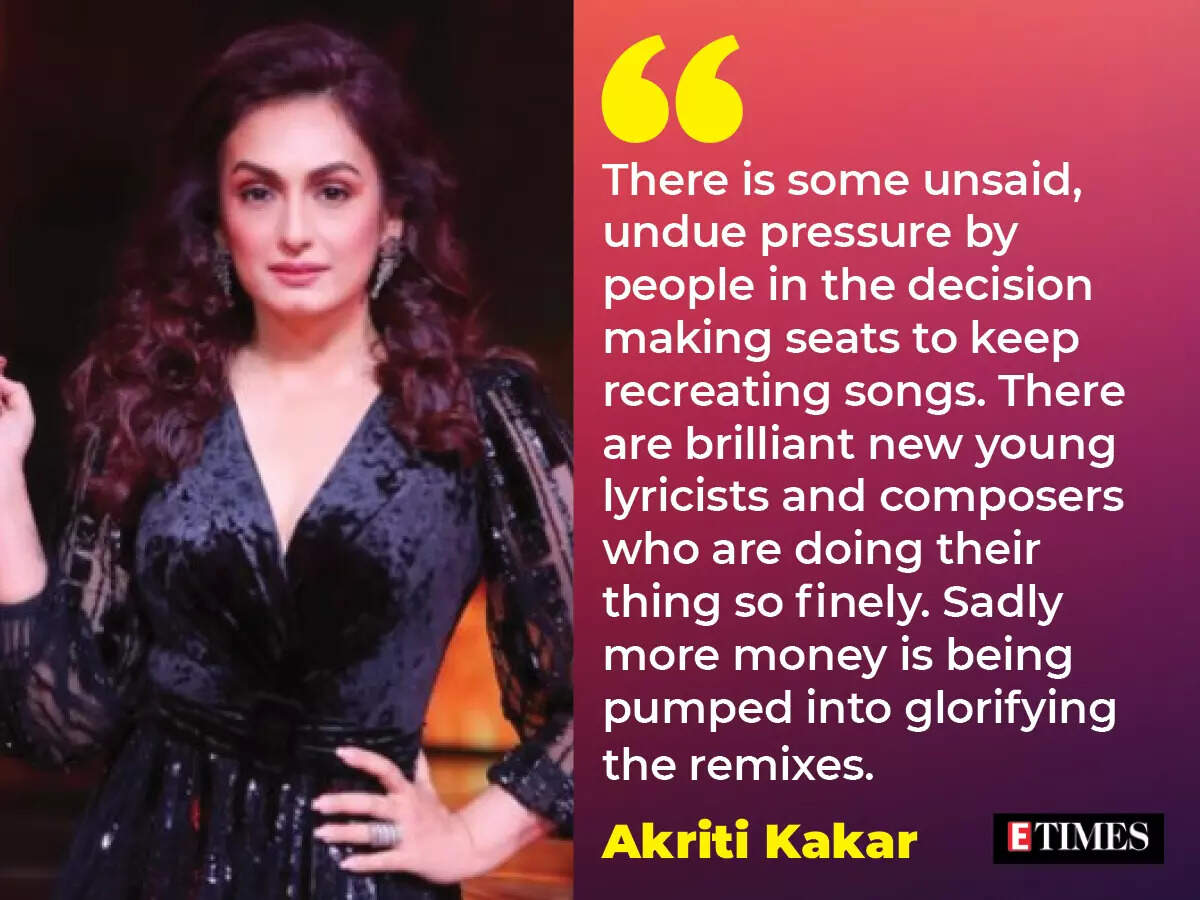
Singer Akriti Kakar believes the current lot of music directors/lyricists are not incompetent, but “there is some unsaid, undue pressure by people in the decision making seats to keep recreating songs”. “There are brilliant new young lyricists and composers who are doing their thing so finely. Sadly more money is being pumped into glorifying the remixes is only why they are seen and heard more. Bollywood definitely doesn’t lack originality. There are some really beautiful compositions coming out in the movies. Freddy, Brahmastra, Prithviraj, Laal Singh Chaddha all had lovely albums. They just need to be pushed more. That’s all,” she says.
Neha Bhasin agrees there is no lack of originality. “I feel remixes have always been the ploy of the labels, a sort of mafia, wherein they have the rights of old catalogue and they feel it’s safer to recycle that and move it forward. And there are certain labels who have been doing it since the 90s,” she shares.
Singer Savaniee Ravindrra believes we have great talent in our country, but it is yet unexplored. “The composers and upcoming artistes don’t get enough encouragement to create good music. We unfortunately have a habit of blaming it on the audiences,
ki audience ko yahi acha lagta hai, audience ko peppy songs achhe lagte hain. But I’m totally against it,” she says.
Is technology to be blamed?
With advanced music technology, it has become easier to compose, notate, analyse and edit music. Even voice can be modulated through softwares. And then there is social media that has also altered the way we consume music. Could technology then be blamed for an evolution in music? Akriti disagrees. “Technology? No. It’s always the human mind steering technology,” she says.
Neha Bhasin thinks while it’s great that the audience is rebuking the system of remakes, she also feels it is them to be blamed for it today with the whole reel culture of remixing old music. “
Woh Lo-fi bana rahe hain. (Lo-fi is a music or production quality in which elements usually regarded as imperfections in the context of a recording or performance are present, sometimes as a deliberate choice.) So it’s also coming from the so called netizens who are to be blamed as well. Today they just want something really fast to dance on, to make a reel on, and it’s creating a very strange environment of fast food music, which the labels are adhering to,” she makes a pertinent point.
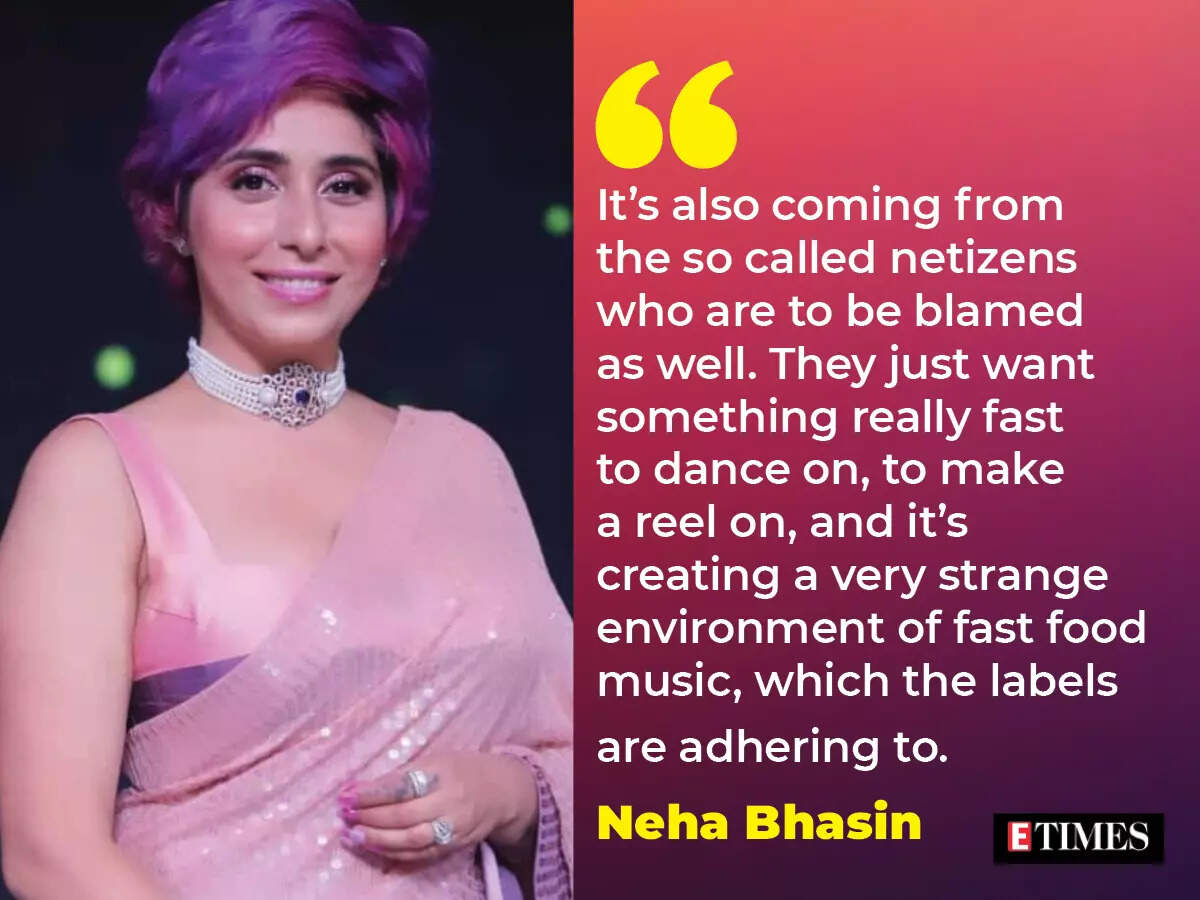
With original music, the stakes are higher and it takes more time to be injected into the system, and to penetrate into people’s hearts. “A hit song is a hit song which is a hit for a long time, and I feel nobody has time for that anymore. I feel that culture boils down to social media and people also. So it’s a collective sort of accountability of a weird culture that we all are a part of right now,” she signs off.
For all the latest entertainment News Click Here

